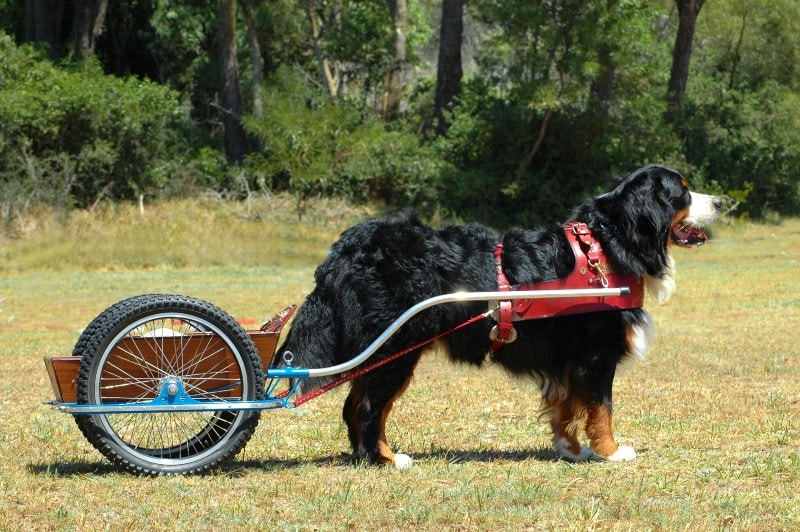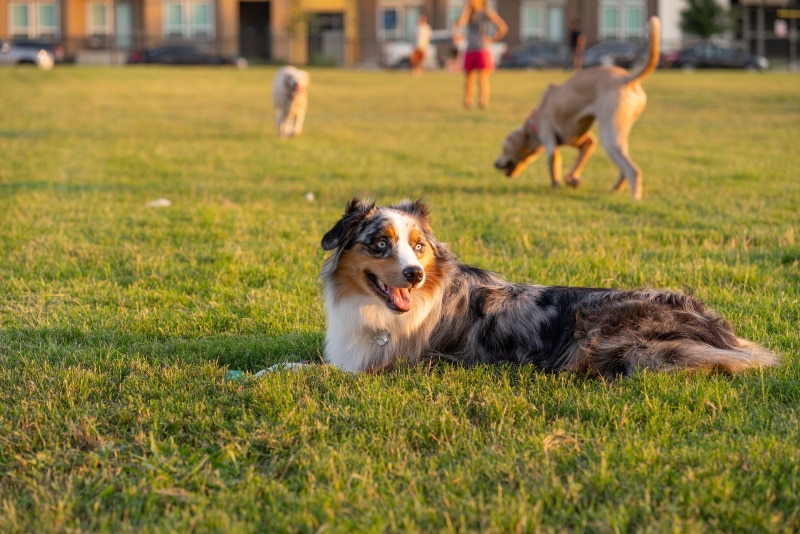Can Dogs Eat Raw Eggs? Vet-Reviewed Facts & Safety Guide
Updated on

Some pet parents enjoy giving their dogs human food. However, high-quality dog food typically supplies dogs with all the nutrients that they need to stay healthy, and some human food is harmful to canines. In fact, you should never feed your dog raw eggs, primarily due to the risk of Salmonella infection that can make your dog very unwell. Although some dogs consume a raw diet, raw eggs should never be on the menu. We’ll discuss why you shouldn’t feed your pet raw eggs and much more below.
Can Dogs Eat Raw Eggs?
Eggs can contain a variety of bacteria that are removed during the cooking process, and the most well-known is Salmonella. For this reason, it is always better not to take the risk, and feed your dogs cooked rather than raw eggs.
Salmonella
Salmonella is a bacteria which can be present in fresh eggs, even in those with clean, uncracked shells. As with us humans, usually the first sign that appears from a foodborne illness caused by Salmonella is gastroenteritis. Signs include abdominal pain, diarrhea containing blood, fever, nausea, and vomiting. Unwell, young and old dogs are more likely to suffer from serious disease if they eat a contaminated egg.

E. Coli
coli, another bacteria, is also a potential risk. Both E coli and Salmonella are zoonotic. This means they can be spread to humans through an infected dog’s feces, vomit and saliva.
Biotin Deficiency
Biotin is a water soluble B vitamin, also known as B7. It has important roles in maintaining healthy skin, supporting cell growth and metabolism.
Eating raw egg whites frequently can lead to the avidin in the egg whites binding the biotin together. When the avidin tightly binds the biotin together, it becomes unusable, leading to biotin deficiency. Biotin deficiency can cause hair loss, flaky skin, loss of appetite, a slowed rate of growth, a dull coat, lethargy, and skin lesions. However, it would take a steady diet of raw egg whites to cause biotin deficiency, which you shouldn’t be feeding your dog to begin with. Cooking denatures avidin so cooked eggs do not cause the same problems.
What to do if Your Dog Has Salmonella or an E. Coli Infection
Carefully follow your vet’s instructions if your dog has been diagnosed with Salmonella or E. coli. Both can spread quickly and easily to both humans and other pets, so you should be very careful. Wash your hands thoroughly after every time you handle your pet. You should wear gloves when clearing up after them and when handling water bowls, toys, or anything else that comes into contact with your dog’s mouth. Carefully disinfect these items and any that have come into contact with your dog’s feces or vomit. Dogs that are severely affected may have to be hospitalized and undergo treatment.
Can Dogs Eat Cooked Eggs?
Dogs can eat eggs, and they’re good for them. Eggs are filled with protein, amino acids, and fatty acids, making them a healthy snack that most dogs love. They can be fed scrambled ( without any additional oil or seasonings) or hard boiled.
Feeding too many eggs can lead to health problems like obesity. In general, it’s best to only serve an egg once a week to prevent weight gain and rely on quality balanced dog food as the primary source of your pet’s nutrition.

Final Thoughts
As you can see, feeding raw eggs to your canine pal is not without risks and can make them very sick. If you want to feed your dog eggs, it is safest to serve cooked eggs as an occasional treat. Eggs contain healthy protein and other nutrients, but they’re too high in fat to serve regularly to your pup. Before adding cooked eggs to your dog’s diet, check with your veterinarian to ensure it’s okay. Dogs on special or restricted diets may not be able to eat eggs.
You Might Also Be Interested In:












